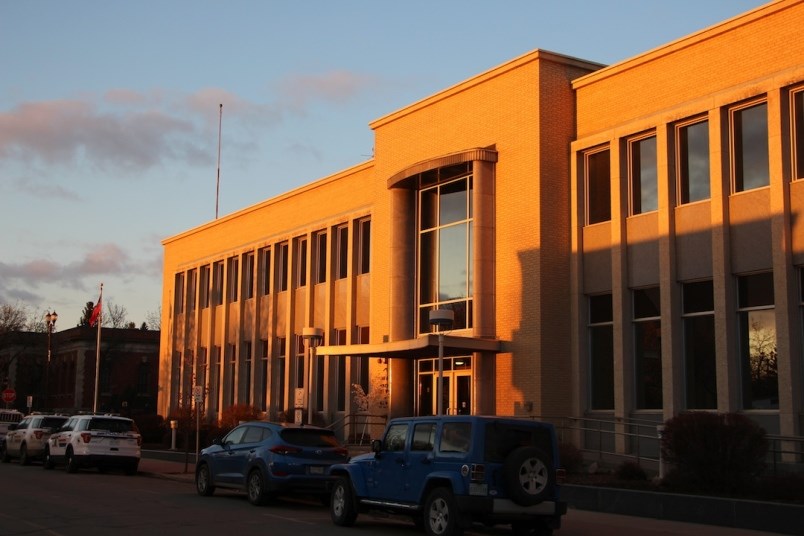Yorkton Council approved a tender for Phase I of Water Main Replacement on York Road at its regular meeting Monday.
“The York Road - Phase 1 Water Main Replacement Project tender was advertised on Sask Tenders and the City website on March 31, 2020. Four Contractors submitted bids,” explained Trent Mandzuk – Director of Public Works with the City at the meeting.
The two lowest tenders, Wyonzek Brothers Construction Ltd and JJ Trucking Ltd came in only $6,300 apart, which had City Administration looking at the tenders more closely, said Mandzuk.
“The City of Yorkton’s Purchasing Policy procurement procedures encourages the development of local sources of supply to the extent permitted under the trade agreements and that such vendor offer value for money to the City,” he said. “It also allows for an evaluation process in which vendors must be treated fairly and must not give preference to vendors located in the City of Yorkton. The policy states “vendors to be selected on best value basis, which involves a consideration of factors other than price” and we may issue a request for information in order to gather information about a bidder.”
Through the process Wyonzek was ultimately the recommendation of Administration, even at the slightly higher tender.
“Wyonzek’s company has an excellent working relationship with the City of Yorkton and has completed many water main replacement projects in past years,” said Mandzuk.
Water main replacement is funded through the waterworks operational budget. The remainder of the budget will be used for contingency, engineering, and repairing the asphalt roadway (estimated at $65,000) and curbing (estimated at $25,000) which will be removed during the water main replacement process.
Council would unanimously approve the recommendation, but the project will make only a small dint in the amount of water main work that could be needed in the city soon, explained Mandzuk.
As background Mandzuk told Council the need to replace water lines is huge.
“A critical component to Yorkton’s public health and economic well-being is our City’s drinking water, which is brought to the tap through an elaborate network of underground pipe distribution systems. Since most of this network is underground, it is out of sight and often overlooked in comparison to other infrastructure such as roads and sidewalks,” he told Council.
The lines as they now exist are often old and they are failing.
“A 2018 study conducted by the Utah State University Buried Structures Laboratory indicated that water main breaks across North America have increased by 27 percent in the last six years. Cast iron (CI) pipes represent the largest pipe material inventory in North America. 82 percent of all CI pipe is over 50 years old and their break rates have increased significantly by 43 percent since 2012 and are expected to increase,” said Mandzuk.
“Factors such as climate, pipe material, installation practices and soil types can greatly affect failure rates.
“Economic impacts from water main breaks include loss of treated water, increased maintenance budgets, overtime for service repairs and damage to City and private property.”
The American numbers are reflected locally.
“The City of Yorkton has experienced an increase of 150 percent in water main breaks and a 363 percent increase in service connection breaks over the past five years,” said Mandzuk, adding breaks cost the City money. “The average water main break costs approximately $15,000 to repair and around $10,000 for a service connection leak.”
In 2015 there were eight service connection leaks and eight water main breaks. In 2019 the numbers were 37 and 20.
“The objective of the City’s water main replacement programs is to reduce operating costs, service level impacts and to protect the safety of the distribution system,” said Mandzuk.
“The most important factor used to quantify the condition and occurrences of failing underground pipe networks is water main break rates. Water main break rates can vary year to year and even seasonally. Break rates tell a compelling story, which can aid in asset management decision making as it relates to defining pipe criticality and costs of repairing our underground water pipes.
“The City of Yorkton currently uses water main break frequency as the most heavily weighted factor to determine which water mains throughout the city are scheduled for replacement. Pipes with the highest number of breaks per 500-meter sections are prioritized. If two water mains have the same break frequency the larger diameter and/or larger user group takes precedence. Cast iron water mains account for 100 percent of failures in the past five years.”
The costs are overall significant.
“Last year the City spent $340,000 on water main breaks, which could go towards planned water main replacement if our system was not experiencing these problems. The main replacement budget for 2020 has been increased 25 percent from $567,500 in 2019 to $707,700 in 2020. The average lineal meter cost of a planned water main replacement is $1,500 per meter, making the replacement value of the network $200,000,000 in today’s dollars. With current funding, the distribution network is replaced in 282 years versus the previous 315 years,” said Mandzuk.
But much of the pipe is only getting older.
“The average age of cast iron pipe in Yorkton’s distribution system is 75 years old. There currently is 40.4 km currently in the system, which will take 95 years to replace based on current operational budget funding levels. This means that the last bit of cast iron within the distribution network will be 170 years old before it is replaced,” said Mandzuk, adding “That’s concerning.




